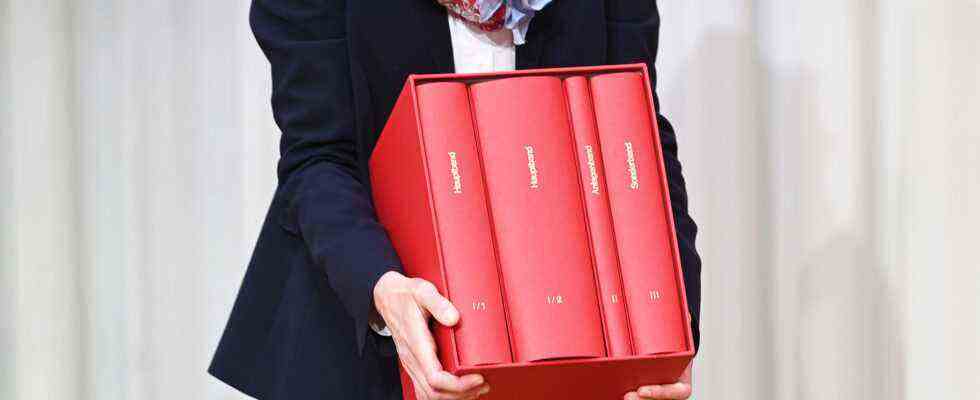comment
As of: 01/20/2022 6:32 p.m
The report on abuse in the Archdiocese of Munich reveals a system in which those responsible continue to deny, cover up and ignore says Tilmann Kleinjung. The reputation of the Catholic Church is now thoroughly damaged.
It’s a look into the abyss. again. The Munich lawyers draw the picture of an impossible church. Merciless to the victims, merciful to the perpetrators. Between 1945 and 2019, 497 children and young people were sexually abused by priests, deacons and church employees. At least. The law firm identified 235 perpetrators. At least.
It is known what is in the files of the Archdiocese. Experts speak of bright field. The dark field is larger. Therefore, these numbers are not very meaningful. However, this comprehensive report is not so much about the numbers. It’s about a system. Who enabled abuse, covered it up, ignored it?
A devastating testimony
And that’s where those responsible come into view. The superiors, the vicars general, the bishops. The report gives you a largely devastating testimony. Let’s start with the incumbent: Cardinal Reinhard Marx. The experts accuse him of not treating the cases of abuse as a top priority for a long time.
The public impression was actually different: Marx, the doer who recognized the signs of the times. This was only actually the case from 2018, when the abuse study by the German Bishops’ Conference documented the mass abuse of children and young people.
Marx commissioned this study and spared neither himself nor his predecessors in commissioning it. That’s strong. Weak that he was not personally present at the presentation of the report. That would have been an important picture for those affected and for the church: How a cardinal faces the judgment of the experts for everyone to see.
No insight, no responsibility
What the lawyers found out about his predecessor, Cardinal Friedrich Wetter, is depressing. He was archbishop in Munich for 25 years. And not in the dim, distant past, but up to the year 2008. He obviously didn’t notice the growing attention in church and society towards crimes of abuse in his own ranks.
In 21 cases, Wetter did not react appropriately. And he doesn’t deny having known about the cases, he just doesn’t want to recognize any misconduct on his part. Denial of responsibility at the highest level.
Deny and deny
Which brings us to Joseph Ratzinger. He was archbishop in Munich for only five years, from 1977 to 1982. He was also a bearer of responsibility who didn’t want to take responsibility. The emeritus pope explains verbosely why he did not behave incorrectly in the four cases he was accused of. He denies any knowledge.
He does not want to have attended meetings, even if the minutes of the meeting identify him as a participant. In the case of perpetrators, he differentiates between whether they acted as priests or as private individuals. As if that would play any role for those affected.
With such subtleties, Joseph Ratzinger shows more than clearly that he was always primarily concerned with the reputation of the institution and ultimately also with his own reputation. It’s now badly damaged. It would have been so easy. One sentence would have sufficed: a simple “I’m sorry”.
Editorial note
Comments always reflect the opinion of the respective author and not that of the editors.
Commentary on the report on abuse in the Archdiocese of Munich and Freising
Tilmann Kleinjung, BR, 20.1.2022 5:34 p.m

